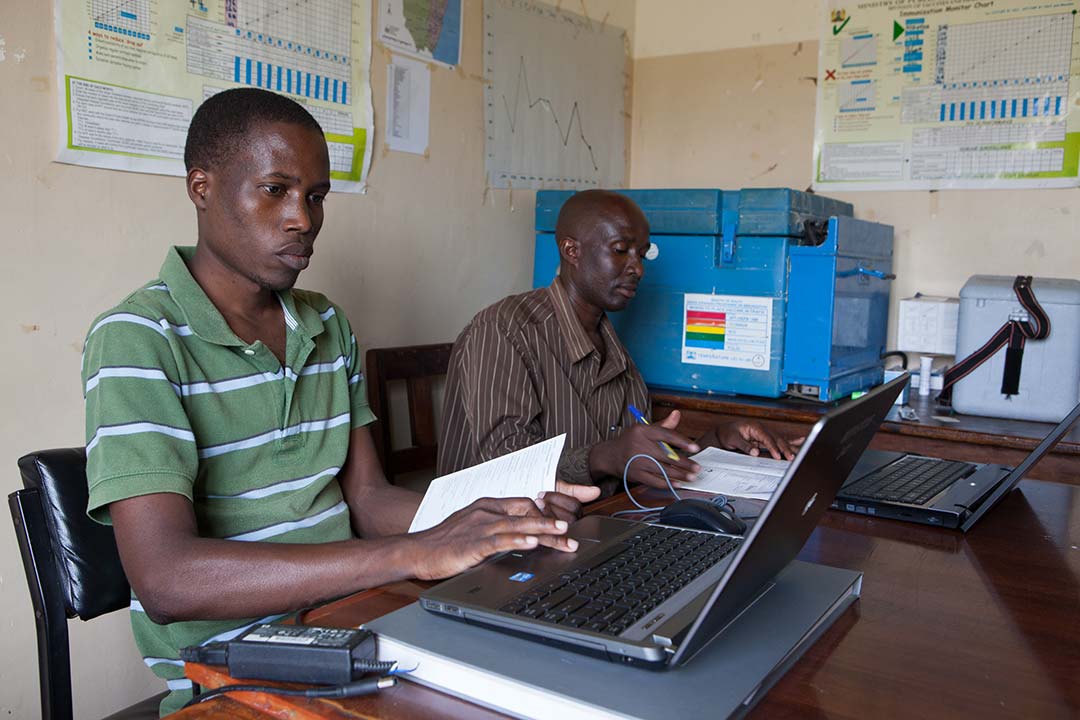Telemedicine – an experiment begun amid COVID-19 in South Africa – stays on as HIV help
The condom broke. You need a prescription for post-exposure prophylaxis, but the nearest doctor is miles away. What do you do? A pandemic-tested online system is offering South Africans a digital gateway to care.
- 20 January 2025
- by Ray Mwareya

Amid the pressures of the COVID-19 pandemic, South Africa’s Ministry of Health moved to approve the use of telemedicine as a necessity. Since then, it has stayed on as a tech tool managing another, older pandemic: HIV.
The HIV Clinicians Expert Telemedicine Platform is South Africa’s biggest telemedicine service provider, and deploys videolink tech to reach all corners of the country, wherever people living with HIV are located.
“The HIV Clinicians Expert Telemedicine Platform is a hybrid initiative that bridges private innovation with public health needs,” Rudi de Koker, project manager at Digital Health Cape Town (DHCT), and face of the project, explains. DHCT owns and runs the platform.
Finding need
Unequal access to HIV diagnosis, treatment, care and epidemiological surveillance was what the DHCT set out to address.
Broadly speaking, wealthy suburban folk living with HIV receive more reliable access to often better care, while rural and slum-dwelling populations get the short end of the stick. Health infrastructure may be thinner on the ground in poorer or more isolated communities, and bus or taxi fares to traverse long distances can be prohibitively costly.
“Telemedicine provided a unique opportunity to centralise expertise, reduce stigma and deliver quality care directly to patients,” De Koker says.
Have you read?
- Antimicrobial resistance emerges as a bigger killer in Africa than malaria, HIV or TB
- In Zimbabwe, progress on HIV management is also helping protect patients from other deadly threats
The platform’s clientele is as diverse as South Africa, he says. However, a balance must be maintained – while serving clients in poor rural townships, the needs of middle-class clients in huge cities like Cape Town must also be met. This advances “equal care”, De Koker claims.
Cape Town is the service’s operational base, but the platform serves 450 health sites across the country, reaching communities in all nine provinces of South Africa.
A day in HIV telemedicine
A typical day on the platform involves medics and support staff logging in to offer virtual consultations to patients, facilitating better treatment adherence, conducting monitoring and offering real-time support for healthcare providers in pharmacies and remote clinics. Laboratory results are integrated into software on a patient record interface, “ensuring that care decisions are data-driven and seamless”, De Koker says.
“The HIV Clinicians Telemedicine tool has been a game changer in my practice,” Dr Enwongo Ettang, a general practitioner with the National Health Institute of South Africa, who uses the platform.
“For example, when managing patients with drug-resistant HIV or co-infections like TB, I can quickly make a referral to the nearest hospital from the comfort of my laptop,” he says.
It saves time and reduces the need for unnecessary referrals, allowing him to provide comprehensive care at the point of need. For instance, when it comes to patients who have had a broken condom requiring post exposure prophylaxis, telemedicine is a route to a quick consultation. Getting a rapid risk assessment and subsequently, a prescription to the nearest pharmacy, can be invaluable in mitigating the risk of infection.
Slow adoption
At face value, South Africa appears to be moving relatively slowly in adopting online or at-a-distance medical care.
That’s mainly due regulatory complexities, unequal digital infrastructure and a cautious approach to safeguarding patient safety and privacy, De Koker explains.
He cites systematic barriers of “high [mobile] data costs, low digital literacy and limited healthcare budgets”.
Ettang agrees. Not all patients find it easy to connect digitally. The elderly, especially, face challenges, as they may not feel confident navigating technology. To address these barriers, he offers flexible solutions, such as voice calls or WhatsApp video calls instead of video consultations.
A bright outcome is that many patients in South Africa appreciate the discretion telemedicine offers. “They can consult with me from the comfort of their homes without the stigma that can sometimes come with visiting a clinic,” adds Ettang.
However, he reveals that there has been a lack of awareness and trust in telemedicine, both among patients and healthcare providers. Many people still prefer face-to-face consultations because they see them as more personal and trustworthy.
Economics, too, have hindered the adoption of telemedicine in South Africa. Until recently, there was little clarity on how telemedicine would be integrated into the healthcare system, or how consultations would be billed. “The COVID-19 pandemic, however, has been a turning point,” he says.
Reach and impact
The single biggest achievement for the tool has been reducing treatment interruptions by over 30% among pre-exposure prophylaxis (PrEP) patients who enrolled on the platform, says De Koker.
They have also seen improved adherence rates due to the convenience and anonymity of virtual consultations. “Access for patients has been made possible through a network of over 450 pharmacies in South Africa and the platform has been used to initiate PrEP in a donor-funded programme,” he adds.
For staff, the platform has streamlined workflows, allowing clinicians to manage more patients efficiently while maintaining quality care. All this is possible by means of clinical dashboards, electronic health records within a paperless environment. Additionally, the platform has fostered a collaborative environment where healthcare providers across regions can share insights and solutions in real-time.
A PhD student in HIV/AIDS Management at Stellenbosch University, De Koker’s passion revolves around using digital tech to advance vaccine development and achieving equity in HIV healthcare access. “This excites me most,” he says.
This article was originally published on VaccinesWork


